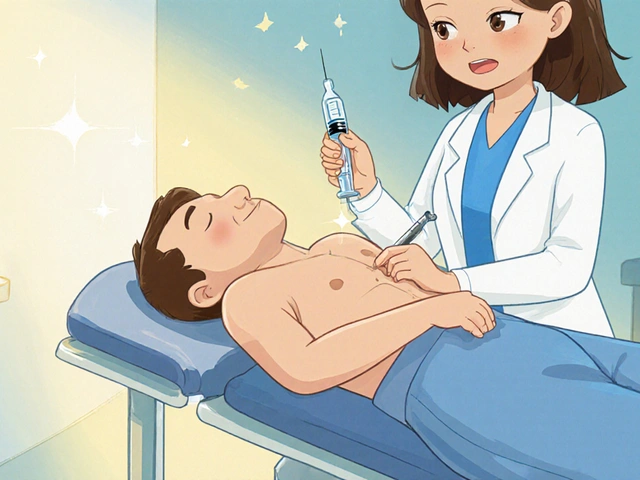Allergy Relief: Fast, Safe Tips for Sneezing, Itchy Eyes and Congestion
Sneezing fits, watery eyes, and a stuffed-up nose can wreck a day. You don’t need to guess what helps. This page gives clear, practical steps to reduce symptoms now and prevent flare-ups later.
Quick at-home steps that actually work
Start by removing the trigger if you can. If pollen is the problem, keep windows closed and run an air conditioner with a clean filter. After being outside, change clothes and wash your face to remove pollen. For pet dander, bathe pets regularly and keep them out of the bedroom.
Use a saline nasal rinse to clear pollen, dust, and mucus. It’s drug-free, cheap, and it helps nasal sprays work better. For itchy eyes, a cold compress brings fast relief and stops rubbing, which only makes things worse.
Reduce indoor dust by vacuuming with a HEPA filter, using dust-mite covers on mattresses and pillows, and washing bedding weekly in hot water. For mold, fix leaks and clean visible mold with appropriate cleaners — if the problem is large, call a pro.
Medicines and when to see a doctor
For many people, over-the-counter antihistamines are a good first step. Non-drowsy options include cetirizine (Zyrtec), loratadine (Claritin), and fexofenadine (Allegra). If you need faster relief at night, short-term use of diphenhydramine (Benadryl) works but can make you sleepy.
Persistent nasal congestion often responds better to intranasal steroid sprays like fluticasone (Flonase) or mometasone (Nasonex). These reduce inflammation and usually work best after a few days of regular use. Follow package directions and give them time to work.
Eye drops can help itchy, red eyes: antihistamine eye drops clear symptoms quickly. If your nose is blocked and you want immediate relief, use a short course of a topical decongestant (like oxymetazoline) for no more than three days to avoid rebound congestion.
If OTC options don’t help, ask your doctor about allergy testing and prescription meds. Allergy shots (immunotherapy) or prescription nasal sprays can reduce long-term sensitivity. Talk to a clinician before starting new meds if you’re pregnant, breastfeeding, or have other health issues.
Seek urgent care if you have trouble breathing, swelling of the face or throat, or dizziness — these can be signs of a severe allergic reaction (anaphylaxis).
Want tailored advice or to refill a med? Visit MyPharmacy-Online for trusted info on medications, safe buying tips, and links to consult a pharmacist. Small changes at home plus the right medicine can cut allergy days in half and get you back to normal faster.

9 Alternatives to Atarax for Allergy and Itching Relief
Explore effective alternatives to Atarax for managing allergies and itching, each with distinct advantages and disadvantages. This article will help you understand the various antihistamine options available, offering insights into their effectiveness and potential side effects. Whether you seek moderate sedation or less drowsiness, these alternatives provide varied choices to suit individual needs.
Categories
- Medications (70)
- Health and Medicine (61)
- Health and Wellness (36)
- Online Pharmacy Guides (16)
- Nutrition and Supplements (9)
- Parenting and Family (3)
- Environment and Conservation (2)
- healthcare (2)
- prescription savings (1)



